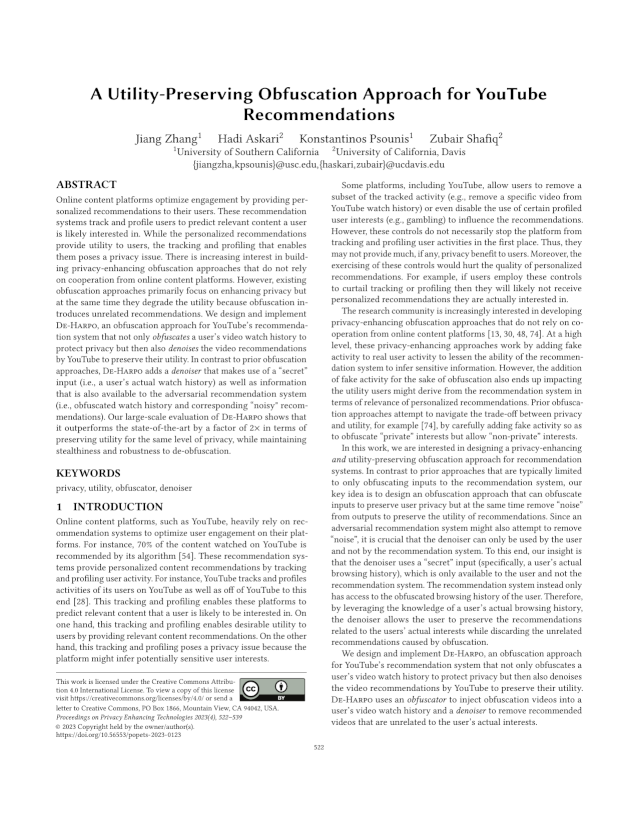A Utility-Preserving Obfuscation Approach for YouTube Recommendations
Authors: Jiang Zhang (University of Southern California), Hadi Askari (University of California, Davis), Konstantinos Psounis (University of Southern California), Zubair Shafiq (University of California, Davis)
Volume: 2023
Issue: 4
Pages: 522–539
DOI: https://doi.org/10.56553/popets-2023-0123
Abstract: Online content platforms optimize engagement by providing personalized recommendations to their users. These recommendation systems track and profile users to predict relevant content a user is likely interested in. While the personalized recommendations provide utility to users, the tracking and profiling that enables them poses a privacy issue because the platform might infer potentially sensitive user interests. There is increasing interest in building privacy-enhancing obfuscation approaches that do not rely on cooperation from online content platforms. However, existing obfuscation approaches primarily focus on enhancing privacy but at the same time they degrade the utility because obfuscation introduces unrelated recommendations. We design and implement DeHarpo, an obfuscation approach for YouTube's recommendation system that not only obfuscates a user's video watch history to protect privacy but then also denoises the video recommendations by YouTube to preserve their utility. In contrast to prior obfuscation approaches, DeHarpo adds a denoiser that makes use of a ``secret'' input (i.e., a user's actual watch history) as well as information that is also available to the adversarial recommendation system (i.e., obfuscated watch history and corresponding ``nois`` recommendations). Our large-scale evaluation of DeHarpo shows that it outperforms the state-of-the-art by a factor of 2x in terms of preserving utility for the same level of privacy, while maintaining stealthiness and robustness to de-obfuscation.
Keywords: privacy, utility, obfuscator, denoiser
Copyright in PoPETs articles are held by their authors. This article is published under a Creative Commons Attribution 4.0 license.

